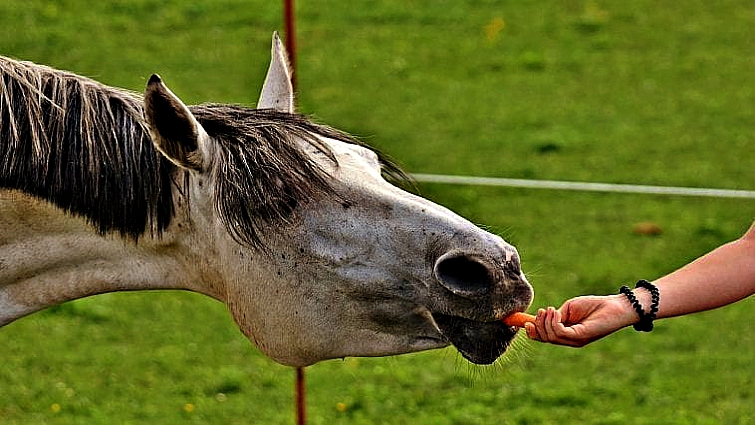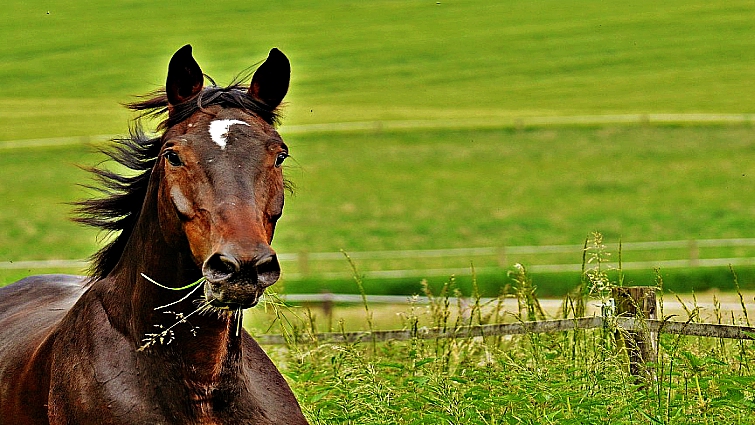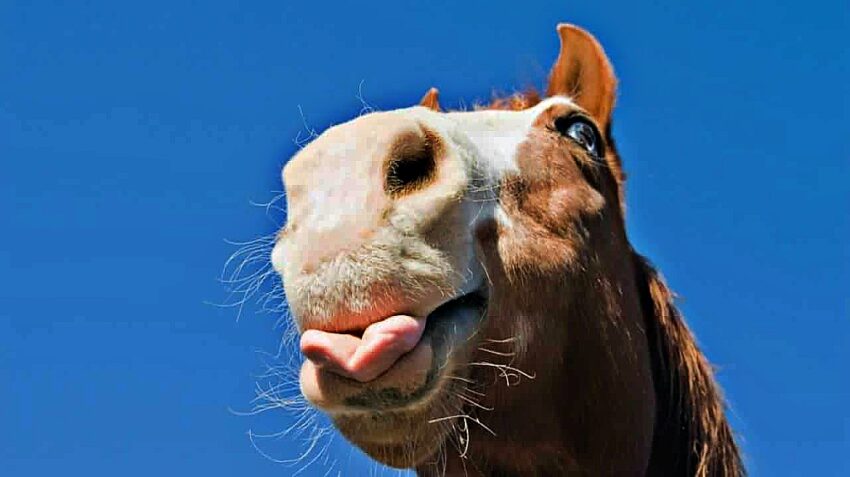Our horses can make some pretty funny expressions sometimes, and the way they appear to react to certain tastes can give us a good laugh. Now Canadian scientists have put the evidence behind the humor: recent research results showed that horses appear to react differently to sweet tastes compared to bitter. Ian Q. Whishaw, MSc, Ph.D., a professor in the Canadian Centre for Behavioural Neuroscience (CCBN) at the University of Lethbridge in Alberta, said horses have distinct facial expressions related specifically to taste. In his study, Whishaw and colleague Emilyne S. Jankunis, a Ph.D. candidate at the CCBN, identified clear equine reactions to bitter quinine and sweet sucrose. They’ve aptly named the reactions the “sucrose bob” and the “quinine gape.”

Whishaw and Jankunis observed 44 stabled riding horses as they received an oral infusion of either sucrose (“sugar water”) or quinine. Fourteen of the horses received one of each infusion at separate times so the researchers could compare individual reactions. A control group of horses received water infusions. The team video-recorded and analyzed the horses’ reactions on a frame-by-frame basis. Whishaw and Jankunis found head-bobbing (aka, the sucrose bob) to be the horses’ standard reaction to sugar water. All the horses consuming the sweet infusion consistently bobbed their heads—as if they were very pleased—when they got the sugar treat, Whishaw said.

They also tended to move their ears forward and relax them, and they licked their lips with the tongue sticking out just slightly. From a neuroscience point of view, Whishaw said observing taste reactions in horses is exciting research, as it suggests a connection between taste and pleasure/distaste centers in the brain. The researchers’ identification of the “sucrose bob”—which has never been described in science before—also provides evidence that horses do indeed recognize sweet tastes, despite modern arguments to the contrary.

“Some people had proposed that horses have lost sweet sensitivity, but our work shows that is not so,” he said. From a practical point of view, this also means owners can help horses that object to unpleasant tastes, like deworming medication, Whishaw said. “My colleague (Jankunis) took a horse that refused to take its oral dewormer and treated it with sugar,” he said. “It did not take many trials before it became very accepting of having things squirted into its mouth, and then it readily accepted the dewormer.”

